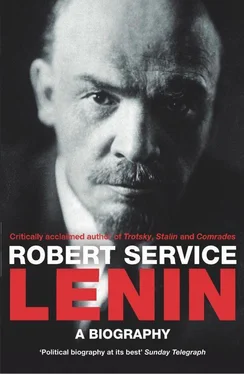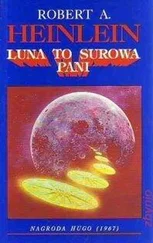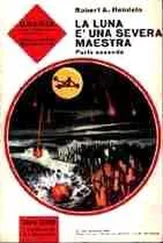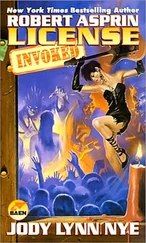It was not only his own actions that gave him his practical importance. Environment was immensely significant. The fact that fellow Bolsheviks shared his political vision meant that a party existed for all-out Revolution even when he was geographically isolated or physically incapacitated. Without that party’s zeal and practicality, Lenin would have been a political nullity. He was also helped by the widespread antagonism among Russia’s intellectuals, workers and other social groups to tsarism and to many aspects of capitalism. And the peculiar nature of Russia – its political tensions, its administrative fragility, its internal national and social divisions, its violent popular culture – played into his hands. The final crisis of the Romanov monarchy was induced by the First World War. The fighting on the eastern front brought disaster as transport, administration and economy started to implode. There can therefore be no doubt that luck was on the side of the Bolsheviks in 1917–18. If the Germans had won the First World War in 1918, the military plans of the Kaiser were to turn upon Russia. Lenin’s government would have been strangled in its cradle. Without all these factors counting in his favour, Lenin would have been a bit-player on the side of the stage of twentieth-century world history.
He has, of course, been written about frequently. But not until recently was it possible to get access to crucial materials about his life and career. Important documentary collections were published under Mikhail Gorbachëv. Then in 1991, as the USSR collapsed, Boris Yeltsin gave direct admittance to the central party archives themselves. During those years I was writing a trilogy on Lenin’s politics, trying to explain the connection between his practical activity and his doctrines within the framework of a revolutionary party that founded the world’s first socialist state.
The analysis I have offered – both then and now – differs in basic ways from other works on Lenin. The most obvious contrast is with successive official Soviet accounts and with various Trotskyist accounts, which have represented him as an unblemished thinker, politician and humanitarian. 1But there are also books which, despite not eulogising him, give him the benefit of too many doubts. Thus I do not share Neil Harding’s conviction that Lenin thought out his ideas thoroughly and exclusively from Marxist principles and that his actions derived entirely from ‘orthodox’ doctrine. 2It is equally difficult to agree with the notion of Rolf Theen that Lenin secretly derived all his fundamental notions from non-Marxist Russian revolutionaries. 3The following chapters dissent, too, from Marcel Liebman’s claim that Lenin strove to minimise authoritarianism in his party and the Soviet state (as well as from the claim in Alexander Rabinowitch’s generally useful works that the Bolshevik party was highly democratic in organisation in 1917). 4Nor, to my mind, does the evidence support the suggestion by Moshe Lewin and Stephen Cohen that, shortly before he died, Lenin tried to reform communism in the direction of eliminating its association with dictatorship, class war and terror. 5
Lenin’s ideological commitment remains a bone of contention. E. H. Carr saw him as a politician who, as the years passed, was more interested in building up the state institutions than in pushing through with his revolution. 6As regards foreign policy, Adam Ulam asserted that export of revolution was no longer a primary goal for Lenin within a few months of the communist seizure of power, and Orlando Figes has pushed this to the extreme by suggesting that Lenin ordered the invasion of Poland in 1920 for purely defensive reasons. 7The following chapters affirm that Leninist ideology is crucial to an understanding of the origins and outcome of the October Revolution.
Much has been written, too, about Lenin’s personality. But Richard Pipes is surely wrong to portray Lenin in power as merely a psychopath to whom ideas barely mattered and whose fundamental motivation was to dominate and to kill. 8Likewise this book takes issue with Alexander Solzhenitsyn and Dmitri Volkogonov, who argue that Lenin and Leninism were wholly alien to Russian traditions; 9it also contests the anti-semitic case of Valentin Soloukhin that Lenin’s ideology was largely a product of the Jewish element in his ancestry. 10A somewhat less demonic portrait of Lenin emerges from the work of Ralph Carter Elwood, Dietrich Geyer, Leopold Haimson, John Keep and Leonard Schapiro. 11But in the past couple of decades it has been suggested, notably by Sheila Fitzpatrick and Ronald Suny, that the way to explain Lenin is anyway not to concentrate attention upon him but to look at broader phenomena in the state and society of both Imperial Russia and the Soviet Union. 12My own earlier work highlighted the political and organisational pressures which pushed Lenin into doing what he did or which, in some instances, stopped him from doing what he wanted. 13Even Alfred Meyer and Martin Malia, whose writings convincingly indicate the importance of ideology, underestimate the obstacles in the path of Lenin’s complete freedom of self-expression. 14So there is certainly a need to look at Lenin in the context of his times. But in the final judgement – as I hope to show – his personal impact upon events in his time and later was crucial.
The aim is not just to give an analysis different from the other serious ones that are available. I also wish to provide something that has hitherto been impossible to achieve: a biography. The Lenin of history was screened from us by the Soviet state. Those documents and memoirs which did not support the contemporary official image were kept hidden. The first revelations under Gorbachëv were memoirs by Lenin’s relatives and by Bolshevik party members. Some of the Politburo records from the revolutionary period were also published. The result was a large increase in our knowledge about Lenin, but always there was the problem that historians were not allowed into the archives to read things for themselves. This changed in 1991. (I was fortunate to be in Moscow on the day when the central party archives were ‘unsealed’ after the abortive coup d’état against Gorbachëv and to use the new historical freedom.) Steadily the files became declassified. The Politburo, Central Committee, Conference and Congress minutes became accessible in their original form. Even material on Lenin’s campaign to unseat Stalin in 1923 could be scrutinised. Lenin as a politician became a more comprehensible figure as a consequence.
This was already an enticement to take another look at Lenin. What has made the project irresistible is the access more recently granted to the archival correspondence and memoirs of his family. Long-held suspicions were proved correct. Even the version of Lenin’s wife’s memoirs that appeared under Gorbachëv turns out to have been subject to politically motivated cuts. Then the reports by his sisters, brother, doctors, bodyguards and nurses were cleared for inspection. At last a biography in a full sense became feasible.
This book starts from the premise that Lenin the revolutionary and Lenin the man are inexplicable without reference to each other. His mixed ethnic background was not without significance. But the idea that this was enough in itself to make him ‘anti-Russian’ or ‘cruel’ is implausible. The point about his family is that its members were marginal elements seeking incorporation into the official Imperial order – and ultimately they failed to achieve this. Like other such families, the parents pushed their offspring hard to achieve educational success. The children were subjected to heavy pressure and not all of them survived unscathed. Lenin was one of the successful ones, but his compulsion to work intensively and meet deadlines stayed with him until his last illness. The contents of his education also left their mark. What has not previously been understood is that Lenin’s schooling involved deep but narrow study. The effect was that his mind was left exposed to other influences, including revolutionary ideas in particular. Lenin’s education enabled him to read foreign languages and to respect science, but also left him open to the attractions of any ideology that seemed to make sense of the society in which he lived.
Читать дальше












